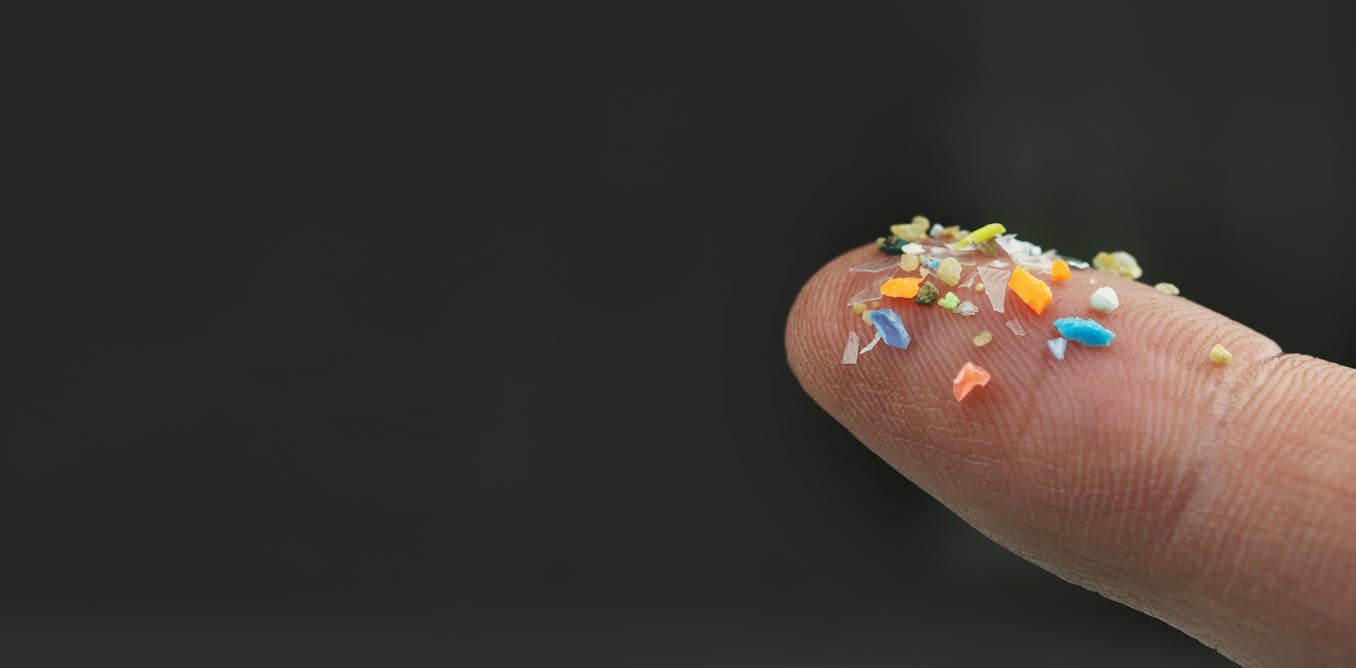 Microplastics have been identified in the water we drink, the air we breathe and the food we eat – including seafood, table salt, honey, sugar, beer and tea. Sometimes the contamination occurs in the environment. Other times it’s the result of food processing, packaging and handling. More data is needed on microplastics in human foods such as land-animal products, cereals, grains, fruits, vegetables, beverages, spices, and oils and fats.
Microplastics have been identified in the water we drink, the air we breathe and the food we eat – including seafood, table salt, honey, sugar, beer and tea. Sometimes the contamination occurs in the environment. Other times it’s the result of food processing, packaging and handling. More data is needed on microplastics in human foods such as land-animal products, cereals, grains, fruits, vegetables, beverages, spices, and oils and fats.
As equipment has advanced, scientists have identified smaller particles. They’ve found microplastics in our lungs, livers, kidneys, blood and reproductive organs. Microplastics have crossed protective barriers into our brains and hearts. While we eliminate some microplastics through urine, faeces and our lungs, many persist in our bodies for a long time.
We are doomed. We get it. Nothing will be done about it because oil and gas has so much money.
I had an eco prof who once said, “the world created humans because it couldn’t figure out plastic itself.” Now the world has plenty of plastic and it doesn’t need us anymore.
I was thinking something similar. Like if a “God” exist they would be like a programmer that set us up and then let us run. Why? They wanted us to transform the world into a plastic hellscape. After that it would be “terrafromed” (plasti-formed?) for whatever will be the evolutionary descendants of those bacteria that are eating the microplastics in the Pacific Garbage patch.
Plastic is the new asbestos.
& lead
Watch out guys, we’re on notice now!
I wish the title weren’t so clickbaity… the article is actually very good and written by a top researcher in the field.
Can someone explain to me like I’m 10 years old why micro plastics are bad and what will happen to my body?
Micros plastics in the body screw with your organs and hormone production, which can lead to things as mild as lower energy levels and increased obesity or as extreme as diabetes, infertility and even cancer.
No, but only cause we are just starting to notice the build up. Think about it this way. There’s something building up in our body that doesn’t have a purpose other than getting in the way other functions.
That is the least destructive it will be to our bodies. Functions will be worse because plastic is taking the place of valuable nutrients or microbotical gut biome. Or it’s just in the way and that brain to cells message take a bit longer. Butterfly effect stuff all over your body on a micro level.
We can’t even really run proper comparisons because we don’t have a control group. Literally every living creature has this build up. The only way someone will have less micro plastics is if they give birth. The act of growing human cells moves some plastic from the mother to the baby. It’s all a guess, but of course that’s science. Now is the “fun” part of proving what theories are true…somehow.
I feel it will likely be similar to asking why asbestos was bad but hundred years ago.
There are some specific medical issues we’ve found, but evidence is “emerging”.
Micro plastics are bad because of their ubiquity and they never degrade (within human lifetime). Everything you eat, drink, breathe is contaminated with microplastics. They accumulate throughout your body and will stay for your lifetime. Similar for all plant and animal life. Researchers have even found microplastics within newborns. You can’t avoid them. You can’t get rid of them. At this scale, any impact becomes bad
but think of the shareholders in the oil industry!
If you get to 100% micro plastics by body weight you become inmortal.








